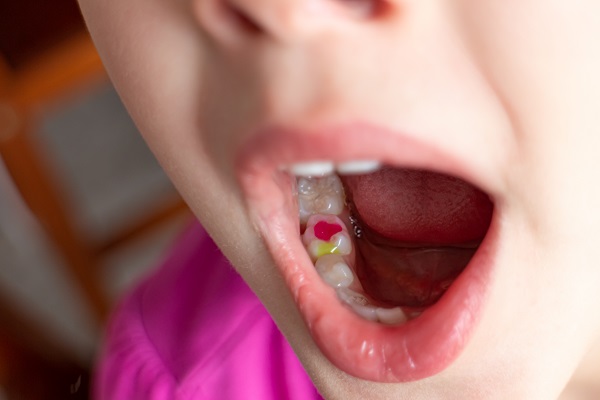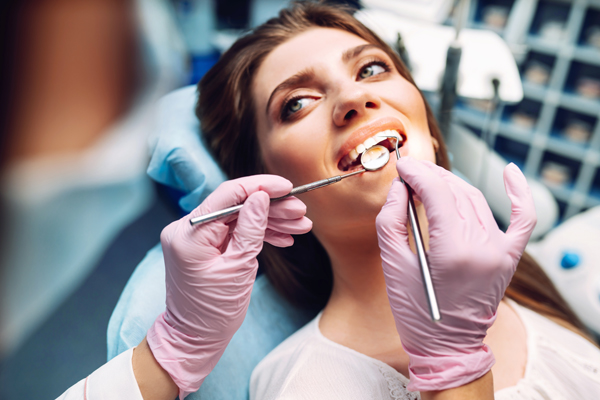How Often Should You Get a Dental Cleaning?

Regular dental cleaning maintains or improves your oral health. For example, dentists include routine deep cleaning in long-term treatment plans for patients who live with gum disease. Dental cleaning is also important for smokers who have otherwise healthy teeth. This piece goes over the routine for dental cleaning.
What to expect from routine dental cleaning
Dental practices prefer to offer first-line treatment rather than complex dental procedures. This requires a patient to have a fairly healthy mouth. Complex dental procedures only come into play for patients with severe dental issues. Dentists prefer that their patients never get to this point.
The main part of first-line dental care is preventative, which is where deep cleaning the teeth comes in. Here is what happens during a routine dental check:
- There is a visual exam where the dentist uses a mirror to get a look at the back surfaces of the teeth
- The dentist may choose to get X-rays of the patient’s teeth
- They will use a fluorescent light and/or dye to check for lesions and other abnormalities in the oral cavity
- They will also palpate the patient’s mouth, throat, and face to check for lumps, swellings, and other abnormalities
- If the dentist finds small dental problems, they will correct them, and they will schedule separate appointments for larger dental problems
- Next, the dentist will rinse the patient’s mouth and use a scaler to scrape off plaque and tartar
- They will use gritty toothpaste and an electric toothbrush to polish the teeth
- The dentist will proceed to floss the patient’s teeth
- Finally, they will apply topical fluoride and dental sealant if necessary
How often an individual gets dental cleaning depends on their unique needs. Here are a few factors that determine how often a person should get a dental cleaning.
The ADA’s take on the frequency of teeth cleaning
The American Dental Association (ADA) does not suggest a specific period between dental cleanings. It defers to dentists’ discretion, based on the individual needs of individual patients.
1. Once a year for a healthy patient with excellent oral habits
Some people are good at caring for their mouth, and dentists can tell when performing a dental exam. A non-smoker who has fastidious oral hygiene is unlikely to suffer from the formation of tartar, especially if they stick to a healthy diet free of refined carbohydrates, sugar, alcohol, and foods that cause staining. Such people typically only need annual deep cleaning.
2. Once every six months for people with less-than-sterling oral habits
Smokers should get their teeth cleaned once every six months and so should people who brush less than twice a day. Anyone with a sweet tooth needs regular dental exams to keep cavities at bay, and so does a person who lacks a steady supply of fluoride in their water or diet.
3. Patients with gum disease may need cleaning once every few months
Teeth cleaning helps treat mild, moderate, or severe gum disease. A dentist will schedule these cleanings as often as their patient needs them.
4. Some systemic health conditions also require frequent teeth cleaning
Diabetes, dry mouth, and the use of certain medications can leave the mouth vulnerable to oral health problems. Regular dental cleaning helps keep these systemic health problems from affecting the oral cavity in a big way.
We pride ourselves in our delivery of preventative care
Our practice operates by the mantra that prevention is better and cheaper than intensive dental procedures. If you agree, get in touch with us to schedule an exam and dental cleaning. Our dentist and dental hygienist look forward to checking on your dental health.
Request an appointment here: https://vsndental.com or call VSN Dental PC at (732) 795-6073 for an appointment in our Manalapan office.
Check out what others are saying about our dental services on Yelp: Dental Cleaning and Examinations in Manalapan, NJ.
Recent Posts
A dental cleaning is a preventative treatment that can protect teeth against tooth decay and gum disease. The treatment is performed to remove plaque and tartar from teeth surfaces. Plaque is a sticky film that coats teeth surfaces. It is made up of bacteria, acids and food particles, and it eats away at teeth surfaces.…
Undergoing a dental exam at least twice a year is important for patients of all ages. A lot of oral health problems go unnoticed because they are symptomless or the signs are so minuscule that only a professional can identify them. Because of this, it is essential to visit a general dentist to undergo dental…
Practicing preventive dentistry is an effective way to establish good oral health. Strict personal oral hygiene practices result in fewer dental problems. Strengthening these practices with regular dental appointments makes preventive dental care even more efficient. Preventive dentistry becomes even more effective by avoiding some bad habits.This habit increases the risk of chipping teeth. It…
Practicing preventive dentistry strategies can help you avoid serious dental problems. It can support your personal goals in keeping your gums and teeth healthy. Prevention is always better than going through treatments for serious dental problems. If you want to know how preventive dentistry can avoid the development of a serious oral problem, here are…


